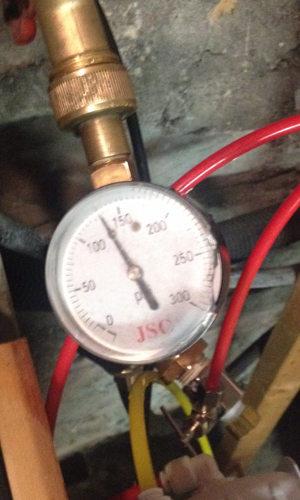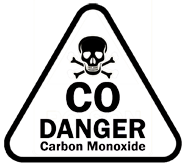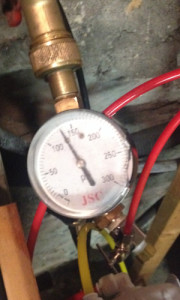
Here are the risks of having high water pressure in your home. Does the water come out of your faucets very fast when you open them? I bet that your toilet makes a “bang” sound when the tank stops filling up. Well, if you have these issues, find out what can resolve these problems inexpensively.
The first step
Before making any plumbing repairs determine if you have high water pressure in your home. It’s the key to success in fixing any plumbing problem. High water pressure can cause numerous issues with plumbing fixtures and water pipes. How would you know if you have high water pressure? Quite simply a pressure reading taken with a gauge would verify normal or high pressure.
High water pressure…
Municipal water authorities have to set the supply pressure to accommodate delivery of their service to buildings, fire hydrants and supply pipes leading to homes. The pressure in most circumstances is over 100 psi while the required maximum pressure for residential homes and commercial buildings is 80 psi. So if you’re wondering how you would have high water pressure, the only reason would be is from the water service coming into your home.
Excessive water pressure that’s not regulated will cause the following plumbing breakdowns and fixture failures to happen:
- wasted water
- piping failure
- bursting water heaters
- relief valves to drip
- faucet leaks
- running toilets
- water hammer
Water hammer
Water that travels through pipes in excessive pressure flows through very fast! When the speeding water comes to an abrupt stop, it will make a banging sound called “water hammer.” What causes the actual banging sound is the fast flowing water suddenly colliding with a closing shut-off valve or plumbing fixture. The following plumbing fixtures prone to make water hammer noises are:
- toilets
- faucets
- shut off valves
- dishwashers
- lawn sprinklers
Is this dangerous
If you are wondering that having high water pressure is okay, think again! Water flowing through pipes continuously at high pressure will cause expensive plumbing repairs and could even cause severe bodily injury. Whatever uses potable water in a home will come apart and deteriorate much quicker than expected. For instance, the lifespan of a water heater operating under normal working pressure is anywhere from six to twenty years with excessive pressure you’re lucky it lasts six years.
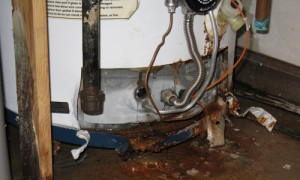 So what’s a little rust?
So what’s a little rust?
You see the picture above where the lower portion of the water heater is deteriorating. With anything else, this could just be a matter of cosmetics. Here’s what can happen when the pressure relief valve fails on a water heater, and it’s operating with excessive pressure:
Pressure regulator
A water pressure regulator that has a maximum 400 psi inlet rating installed right after the water meter and fitted with a pressure gauge to monitor its operation will reduce excessive incoming water pressure down to a safe flow. It will also eliminate any water hammer noises.
A safe working pressure is 50 PSI, which usually handles the demands of residential homes three floors or less. If more pressure is needed adjustments can be made accordingly.
Although just installing one regulator sometimes doesn’t resolve all of the problems. In certain areas throughout Pittsburgh, Carnegie, Crafton, and Ingram the series installation of two pressure regulators after the water meter would be required. The reason for this is so that the very high water pressure can be reduced down in stages versus all at once, eliminating fluid turbulence noise.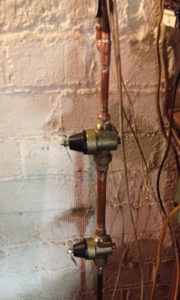
.
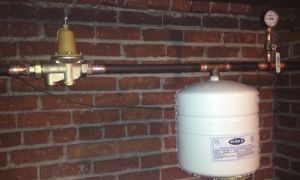
Don’t let it go
High water pressure is dangerous and is not something to take for granted. Leave it to a professional plumber who has many years of experience lowering excessive water pressure in homes. Schedule an appointment with Vince.

